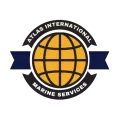
Liquefied natural gas (LNG) is considered one of the most promising alternative fuels for the global shipping industry.
As the industry aims to reduce its greenhouse gas emissions and comply with increasingly strict environmental regulations, LNG has emerged as a cleaner and more sustainable marine fuel.
In this article, we will explore the benefits and challenges of using LNG as marine fuel and its potential role in the future of shipping.
What is LNG?
LNG is a natural gas that has been cooled to a temperature of about -162°C at atmospheric pressure, which turns it into a liquid state.
The process is known as liquefaction and enables natural gas to be transported and stored more efficiently than in its gaseous state.
LNG contains no sulfur and emits significantly less greenhouse gases and air pollutants than traditional marine fuels such as oil or coal.
Benefits of LNG as Marine Fuel
1. Reduced Emissions
One of the main advantages of using LNG as marine fuel is its ability to reduce emissions.
LNG emits 25% fewer greenhouse gases and 95% less sulfur dioxide than heavy fuel oil, which makes it an attractive option for ship owners and operators looking to reduce their environmental impact.
Shipping is a major contributor to global carbon emissions, and the use of LNG as marine fuel can significantly reduce the industry’s carbon footprint.
2. Compliance with Environmental Regulations
The International Maritime Organization (IMO) has set increasingly strict regulations on the emissions of ships.
The IMO has set a global sulfur cap of 0.5% in marine fuels, which entered into force in 2020. To comply with these regulations, ship-owners have turned to cleaner fuels like LNG.
In areas like the Baltic Sea, North Sea, and English Channel, emissions are restricted even further. In these Emission Control Areas (ECAs), the sulfur content limit is 0.1%, and ships have to meet this requirement by using low-sulfur fuels or alternative fuels like LNG.
3. Increased Efficiency
A ship powered by LNG is more efficient than a traditional diesel engine. LNG engines have higher thermal efficiencies, which means they can convert a higher percentage of fuel energy into mechanical work, leading to lower fuel consumption and costs.
4. Availability
LNG is now available at several ports worldwide, providing a reliable and cost-effective alternative to traditional fuels. There are over 200 LNG refueling facilities in operation globally, with many more planned for the future.

Challenges of Using LNG as Marine Fuel
1. High Initial Cost
The cost of retrofitting or building a ship to LNG specifications can be significant, including the installation of the necessary fuel tanks, supply, and distribution infrastructure.
2. Limited Availability of Refueling Stations
Although there are over 200 LNG refueling facilities in operation globally, many regions do not yet have access to adequate LNG infrastructure.
3. Methane Slip
Methane slip is the unintended release of unburned methane during the combustion process, which is a potent greenhouse gas. Mitigating methane slip requires the use of specific technologies that add additional costs.
4. Complex Fueling Process
The process of loading, unloading, and fueling with LNG can be complicated and requires specialized equipment and trained personnel.
5. Safety Concerns
While LNG is an inherently safer fuel with a lower risk of spills and explosions compared to traditional fuels, specific safety concerns surrounding bunkering, storage, and handling of LNG still exist.
Overall, while there are challenges associated with using LNG as marine fuel, the benefits of reducing emissions, increased efficiency, and compliance with environmental regulations provide a strong incentive for the shipping industry to continue to invest in the adoption of this promising alternative fuel source.
Don’t let your vessel go without the essentials. Contact us today for reliable and efficient marine services.
